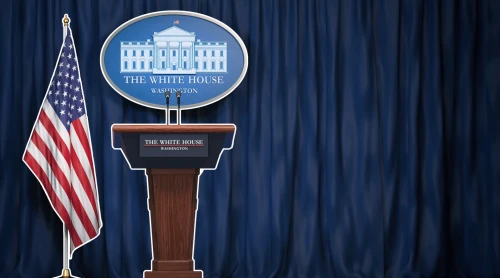Should I Offer Hazard Pay to Essential Employees?
A guide to hazard pay, employee eligibility, and government laws during the COVID-19 pandemic.
April 22nd, 2020
What Employers Need to Know About Hazard Pay, or Premium Pay, for Essential Employees
Updated: May 14, 2020
If you're an HR professional working for an essential business amid the Coronavirus pandemic, the concept of hazard pay has likely been on your mind in the last few weeks.
As essential employees can't work from home, many of them are asking for additional compensation concerning the risk of exposure to the virus for them and their families. And though the recent FFCRA and CARES laws address scenarios such as furloughs, layoffs, and paid sick leaves, the government has yet to offer benefits for essential workers. Moreover, we have also seen essential employers all over the USA cutting back on wage increases, despite the continued threat of COVID-19 for employees. The gradual lifting of shelter-in-place orders is likely a reason for businesses walking back on previous increases.
Regardless -- whether your employees are requesting hazard pay, or you're looking for a way to incentivize them and support them during this difficult time, here's a guide to how hazard pay works, and what you can expect from the government in the near future.
What is Hazard Pay?
Hazard pay is additional compensation given to employees that perform work that is dangerous or can cause physical harm, and even with protective devices, the employee is still prone to injury.
Is my Company Required to Offer Hazard Pay?
Up to this point in time, neither federal nor state laws require that companies provide hazard pay. However, many employers have decided to offer it as a way to recognize their employee's commitment to work during the pandemic.
Alongside companies' initiatives to reward their workers, Congress is currently studying a proposal called the "Heroes Fund," requesting additional pay for essential workers. And states like Vermont, Ohio, and Massachusetts, are starting to consider their own hazard pay legislation for essential employees. However, none of these laws are confirmed yet.
Who is Eligible for Hazard Pay?
If federal and state laws for COVID-19 hazard pay are approved, they will only be available for essential business workers. For reference, here's the list of industries that the federal government believed essential back in March 2020.
Since then, however, this list has been up for debate, so future COVID-19 laws will provide a precise definition of who is considered "essential" and eligible for any type of benefit or additional compensation.
More information on hazard pay eligibility will come once legislations become official.
What is the "Heroes Fund"?
The Pandemic Premium Pay Fund, or COVID-19 "Heroes Fund" is a proposal by the Senate Democrats, introduced on April 7, that requests the federal government to finance a "premium pay" for essential workers during the pandemic.
The proposal reads, "Essential frontline workers are the true heroes of America's COVID-19 pandemic response," and consist of these premises:
For essential frontline workers: An additional $13 an hour, through December 31, 2020, or capped at:
$25,000 for workers earning less than $200,000 per year; or
$5,000 for workers earning more than $200,000 per year.
Recruitment incentive: a one-time premium of $15,000 offered to health care companies to recruit additional workers during the following months.
The "Heroes Fund" is still under consideration, but once it passes, qualifiable employers would receive the premiums and distribute them accordingly among their employees. Additionally, the premium pay applies retroactively, so essential employees should receive the supplementary compensation from the moment the COVID-19 crisis began.
Employers would also be responsible for keeping payment records and returning any unspent funds to the government.
What is the Usual Hazard Pay Rate?
As companies aren't legally required to offer hazard pay, they have the freedom to decide the rate they will provide. For instance, some companies, like Costco or Target, are currently paying $2 more per hour, while others are offering daily, weekly or one-time bonuses starting at $100.
Note: If your company decides to provide hazard pay to essential employees, the Fair Labor Standards Act (FLSA) does require employers to include it as part of non-exempt employee's regular rate of pay when computing their overtime pay.
What other Incentives Can Employers Give Besides Hazard Pay?
If an increase in the worker's salary isn't an option, but the company still wants to reward their commitment, here are some other perks companies are offering to show their support:
Catering meals to the office (packaged individually for safety)
e-gift cards for local restaurants
Additional paid sick leave
Additional paid time off to be used once the crisis passes
Covering child care assistance
Cover COVID-19 testing costs
We commend you for considering offering an incentive for workers exposed to the virus. HR professionals are the liaison between employees and businesses, and supporting workers in this difficult time will go a long way in defining your company's legacy.
The GoCo team is working hard to support HR pros through COVID-19. Visit our COVID-19 Resource Center for more tools and tips 💚

Subscribe to Beyond The Desk to get insights, important dates, and a healthy dose of HR fun straight to your inbox.
Subscribe hereRecommended Posts
HR at the world's most innovative companies
Blog Articles
Performance Management Do's and Don'ts
Blog Articles
How to Encourage Employees to Use Their Benefits
Blog Articles
Search...
Product
GoCo
Resources
Articles
eBooks
Webinars
Customer Stories








